Expert advice on Injecting the Piriform Fossa
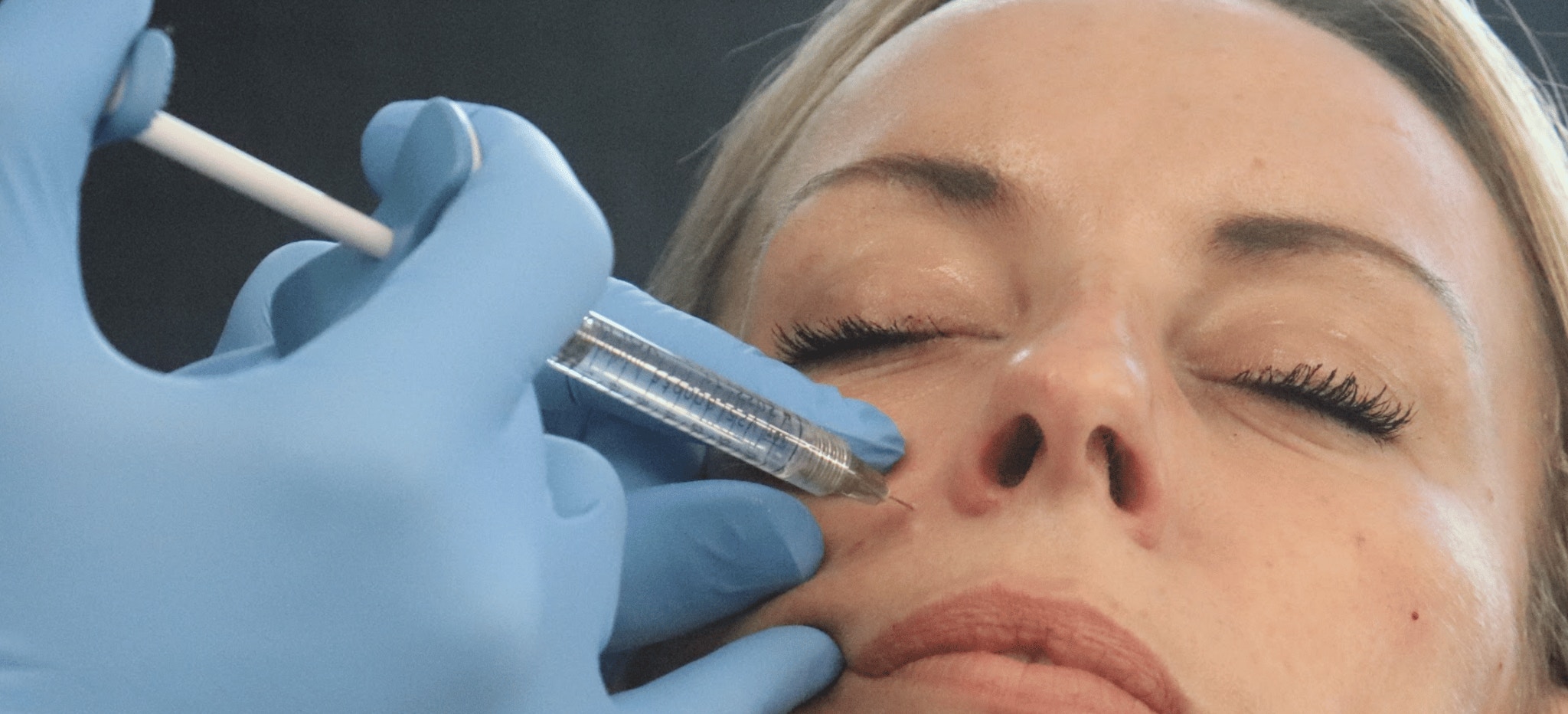
Injecting the piriform fossa can be something of a mystery to new aesthetics practitioners.
This helpful little treatment is a good one to know, however. When done well, it can make a significant contribution towards achieving facial rejuvenation goals in the mid-face.
In order to explain this treatment in detail, we spoke to our head of education and facial aesthetics specialist, Dr Kalpna Pindolia.
Dr Kal has written the following article to better inform your practice when it comes to injecting the piriform fossa...
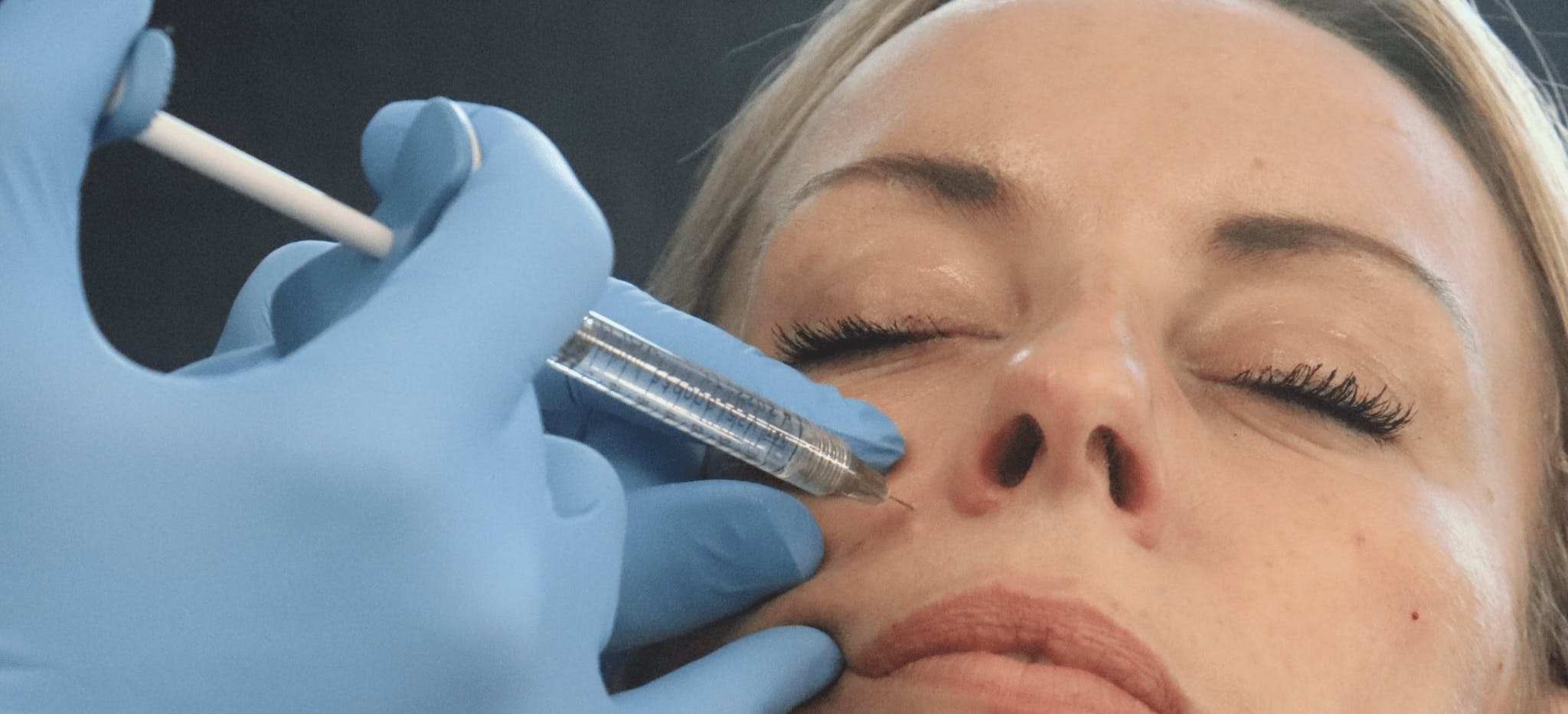
SAFE APPROACHES TO INJECTING THE PIRIFORM FOSSA – ADVICE FROM DR KALPNA PINDOLIA
Nasolabial folds are normal. However, deepening of nasolabial folds can be an early sign of facial ageing.
Firstly, this area can be indirectly managed with filler. This involves restoring the lateral vectors of the face, including the temples and the zygomatic arch, and the upper mid-face. The next stage for treatment is managing the nasolabial region itself.
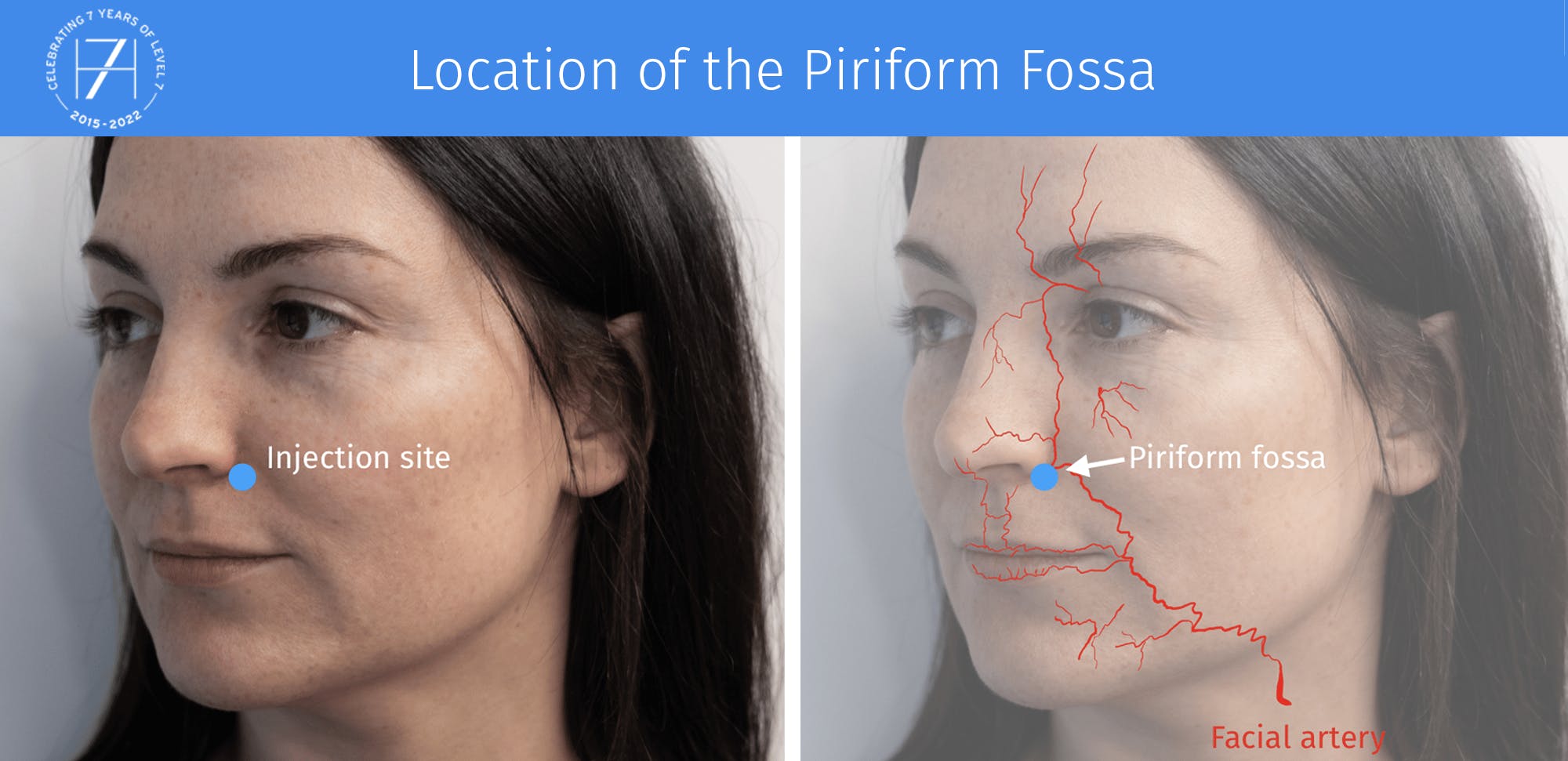
Where is the piriform fossa located?
At the ‘root’ of the nasolabial fold is a triangular region aligning to the region of the piriform fossa.
The piriform fossa can also be referred to as the piriform space, the deep piriform space or Ristow’s space. This is found lateral to the base of the piriform aperture of the skull at the ala of the nose. The nasolabial fold continues from this area, extending down towards the corners of the mouth.
In terms of anatomy, the space is defined:
Inferiorly: by the pre orbicularis oculi fat
Laterally: by the deep medial fat pad
Medially: by the depressor nasi muscle
This fossa, or space, is a potential anatomical opening at the base of this region. It enlarges with maxillary recession and fat atrophy as we age.
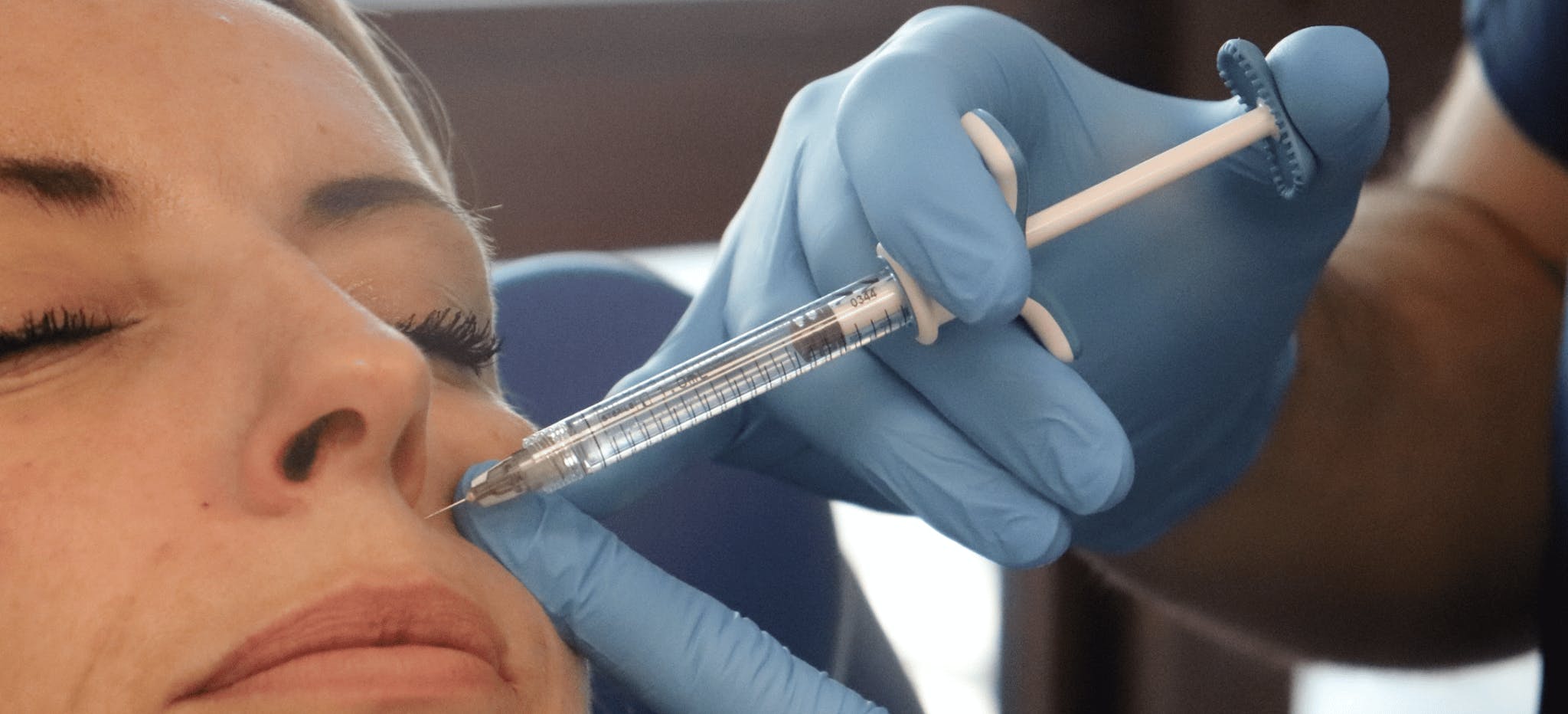
Injecting the piriform fossa
By filling this area, the appearance of the nasolabial folds’ depth can be significantly improved.
Treating the piriform fossa also spares the use of direct nasolabial fold filler lower down, which can cause unnatural looking puffiness.
Apart from restoring volume loss of the nasolabial fold, piriform fossa filler here can also:
1. Narrow the base of the nose
2. Decrease the distance between the columella and upper lip
3. Support the nasal tip
4. Modulate and support the overlying dynamic muscles of the lip region.
Treating this area requires some experience as it can be painful to treat and there is a real risk of vascular occlusion.
The arteries in this region to consider include the…
Facial artery, as it becomes the angular artery lying superficially and laterally
2. Infraorbital artery running superiolaterally.
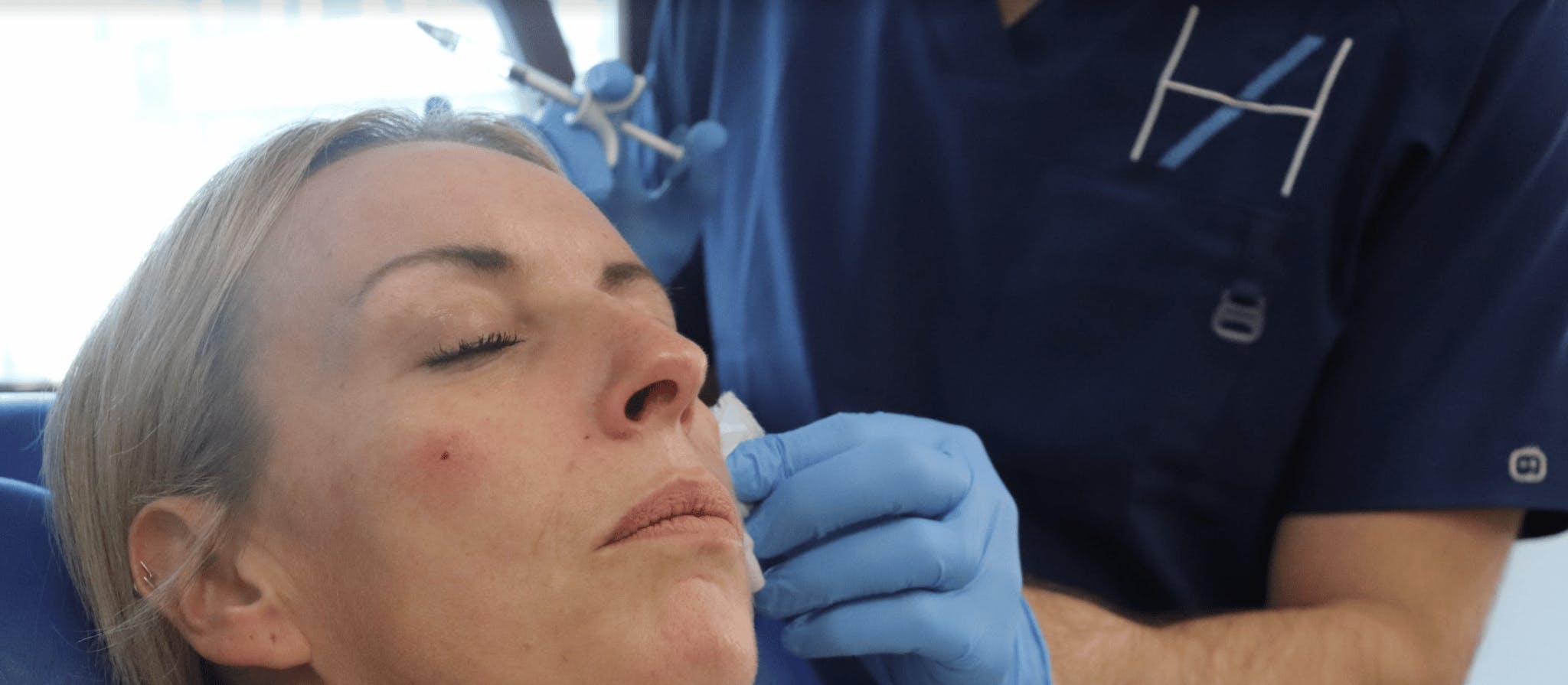
Reducing the risk of vascular occlusion when treating the piriform fossa
When treating the piriform fossa, the risk of vascular occlusion can be reduced by:
1. Considering the depth of injection
2. Aspirating before injecting supraperiosteally
3. Using a cannula
4. Injecting slowly
5. Using a low pressure when injecting
6. Injecting small boluses of filler.
Supraperiosteal injections using a needle in contact with the bone in the deep piriform space can provide a safer zone of treatment with filler. Touching the bone gives precise feedback of the anatomical plane.
The space may have the capacity to accommodate large boluses well in terms of volume. However, this may increase the risk of occlusion, especially as the product used needs to be reasonably cohesive to cause lift.
Bear in mind, that it’s possible to spear the angular artery as your needle descends to the periosteum, and needle stability once at the supraperiosteal plane is important. Angling the needle towards the opposite oral commissure – not angling upwards – also makes it safer. This is because it avoids infraorbital artery territory.
Cannula treatment can be used but it may be more difficult to judge depth. A 25G or 22G cannula is introduced through an entry point pushing past the superficial plane.
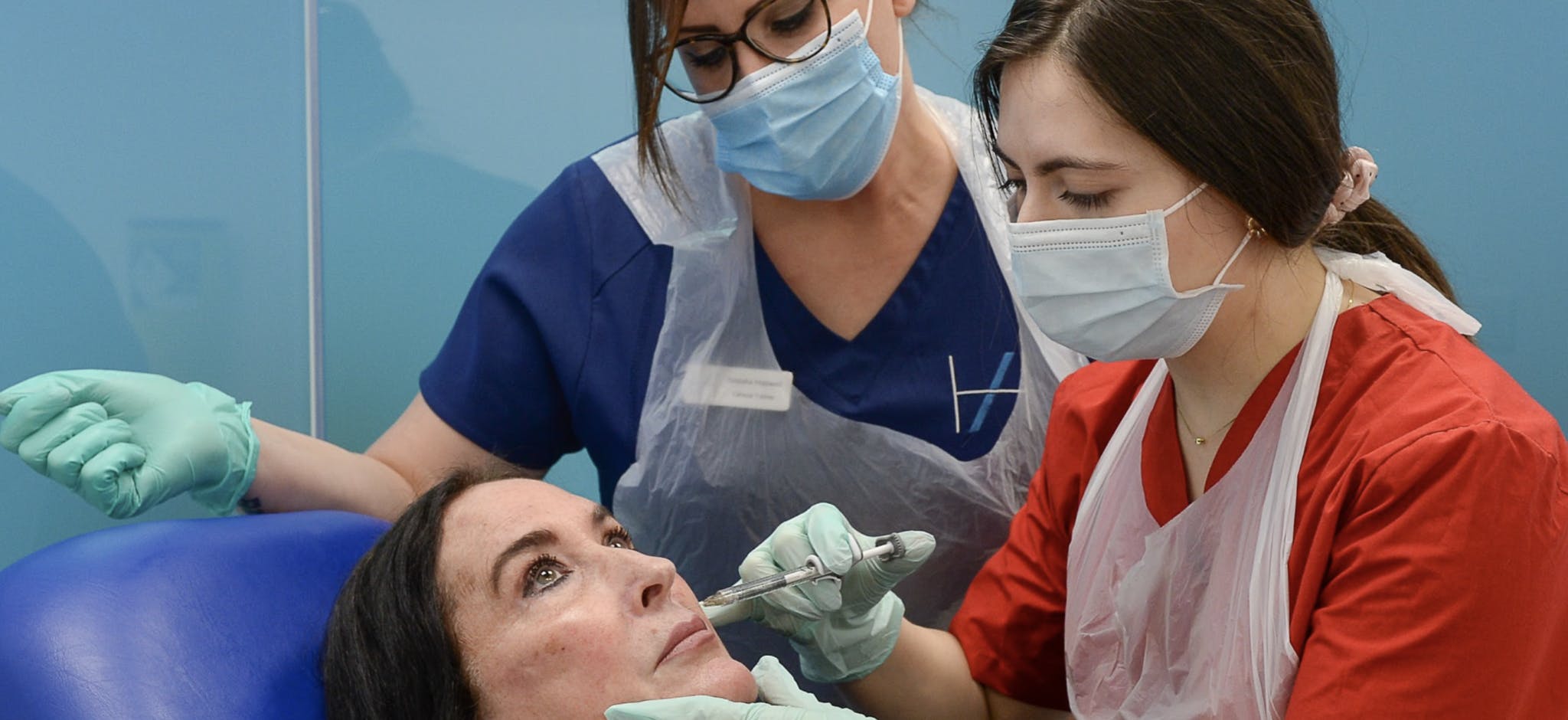
Practising piriform fossa treatments
Understanding the cause of the aesthetic issue means that the origin can be treated for natural looking results. Conducted as safely as possible as part of a panfacial treatment plan, piriform fossa treatments can produce great aesthetic outcomes for your patient’s nasolabial folds.
In order to learn how to perform these treatments, as with most things, practice makes perfect!
Harley Academy offers the following aesthetics courses which cover piriform fossa training. These are open to doctors, dentists, nurses and midwives:
Level 7 Diploma in Botox & Dermal Filler – our Master’s level, Ofqual regulated course provides in-depth anatomical, theoretical and practical aesthetics training. This includes treating both the nasolabial folds directly and the piriform fossa, depending on patient presentations.
Cheek, Mid-Face & Lower Face Filler Masterclass – this targeted Masterclass hones in on tightening up your techniques across these key areas. It comprises dedicated pre-course eLearning and a full day of demonstrations plus treating your own patient under the guidance of our expert clinical trainers. We purposely keep the groups small to ensure you get the most out of your session. You’ll leave feeling confident and inspired!
To find out more about the best aesthetic medicine course for your needs, book a call with our courses advisors. They’ll happily talk you through the relevant choices, requirements and payment options, finding you your perfect pathway to becoming #HarleyTrained.
All information correct at the time of publication
Download our full prospectus
Browse all our injectables, dermal fillers and cosmetic dermatology courses in one document
By submitting this form, you agree to receive marketing about our products, events, promotions and exclusive content. Consent is not a condition of purchase, and no purchase is necessary. Message frequency varies. View our Privacy Policy and Terms & Conditions
Attend our FREE open evening
If you're not sure which course is right for you, let us help
Join us online or in-person at our free open evening to learn more
Our Partners












STAY INFORMED
Sign up to receive industry news, careers advice, special offers and information on Harley Academy courses and services

